University of Washington
Neuroscience for Kids: Discovering the Sweet Mysteries of Chocolate
Read about the history of chocolate and why we crave it.
University of Ottawa (Canada)
Biodidac: Nervous System of Dugesia
An illustration of the nervous system of a flatworm. Can be downloaded.
University of Oxford (UK)
Oxford University: The Structure of the Brain
This report is entitled "The Structure of the Brain." Scroll down to section 3.2.3 for more on brain anatomy.
University of Washington
The Senses
This site has a collection of learning activities, games, experiments, and lesson plans on the five senses. Organized by grade level and topic, this site is packed with an assortment of interactive and engaging activities, that would...
TED Talks
Ted: Ted Ed: The Cockroach Beatbox
Neuroscientist, Greg Gage, takes an unusual approach to showing how legs respond when brains receive and deliver electric impulses by dissecting a cockroach live on stage. [6:16]
PBS
Newton's Apple: Reflexes
Newton's Apple informational site on reflexes. Includes vocabulary, resources, and several hands-on activities.
National Institute of Educational Technologies and Teacher Training (Spain)
Ministerio De Educacion: Relacion Y Coordinacion
This unit will explore the nervous system which gives us the ability to reason, learn, communicate and develop our intelligence. It contains 27 interactive activities.
Wikimedia
Wikipedia: Slime Mold
Wikipedia provides several paragraphs of information on slime molds, members of the Protista kingdom. Includes image.
Other
Biology Guide: Human Life Span
Students learn about the human life-span. Some topics investigated in the tutorial are reproduction, nervous system, skeletal muscle, and homeostasis.
Other
Twow/origin of the Mammalian Brain
Very deep discussion about the evolution and advancements found in the mammalian brain. Not for the faint of heart, but a lot of interesting readable information.
Other
University of Leeds: Muscles & Nerves
This site is a discussion of both the muscular and nervous systems and their interaction. This principally rests on the nerves and their ability to excite the muscles.
Other
Nerves Homepage
A page leading to everything you ever wanted to know about nerves of the hand. Nice graphics and some interesting material.
Other
Marine Biological Laboratory: Why Study Marine Organisms for Biomedical Research
Descriptions of various research projects using marine organisms that have direct impact on medical research. The resource has a perspective on how medicine makes progress.
Other
I scoliosis.com: Spinal Cord and Nerve Roots Anatomy
Read the anatomical components of the spinal cord and their function in the nervous system. Includes labeled diagram. Outstanding information and a helpful aid for understanding.
National Institutes of Health
National Library of Medicine: Electricity, Frankenstein, & the Spark of Life
Using an online exhibition, investigate how Mary Shelley's horror science fiction story, Frankenstein, reflects the knowledge and studies of electricity, and how those fictional ideas are used in modern medicine.
McGraw Hill
Glencoe Biology: Structure of the Nervous System: Self Check Quiz
This multiple-choice quiz on the nervous system allows students to get hints for each question and check their answers after submitting.
McGraw Hill
Glencoe Biology: Organization of the Nervous System: Self Check Quiz
This self-checking, five question quiz over the central nervous system can be used as a review of the concept.
Other
Society for Neuroscience: Brain Facts [Pdf]
This is a publication on the human brain and how it works. Gives details on the neuron, how the senses interact with the brain and much more. PDF (requires Adobe Reader).
National Institutes of Health
Nih Curriculum Supplement for Middle School: The Brain: Our Sense of Self
Through scientific inquiry this module introduces many concepts about the brain, its functions, and its importance in the sense of self. Included are a teacher's guide, interactive student web activities, and resources.
Frontiers Media
Frontiers: Going to School to Sculpt the Brain
When I was a kid, I thought of going to school as an obligation imposed by my parents, and I guess many kids feel the same. My father used to say, "you need to study hard to build a better future for yourself," but I think that if my...
PBS
Pbs Teachers: Changing Your Mind: Increasing Brainpower
Investigate the brain and it's connections - the number of possible routes along which a brain message might travel - by solving and creating geometric progressions. Conduct an experiment to learn about stimulus and response.
PBS
Pbs Teachers: Changing Your Mind: Nerve Cell Infomercials
Build nerve cell models in cooperative groups, and articulate the structure and function of nerve cells to explore the nervous system. Describe specific elements of human physiology by "advertising" the nervous system in nerve cell...
PBS
Pbs Teachers: Scientific American: The Wonder Pill: Placebo 1
Investigate how the brain can be fooled into incorrectly processing sensory information. Conduct an experiment to fool someone into thinking you've touched his or her hand.
PBS
Pbs Teachers: Scientific American: The Wonder Pill: Placebo 2
Identify the physiology of how a placebo affects the brain through "ritual expectations." Perform an experiment to explore how the manner in which a ritual is presented may affect the outcome of its success.










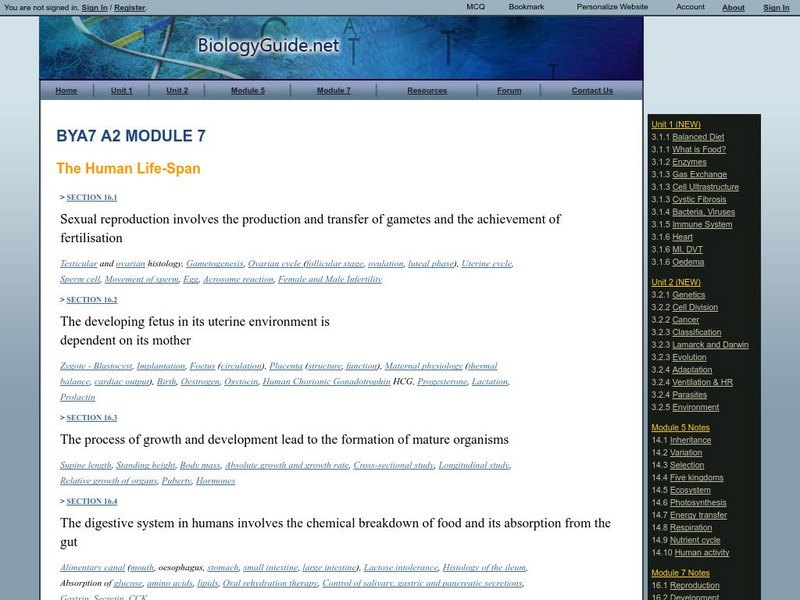

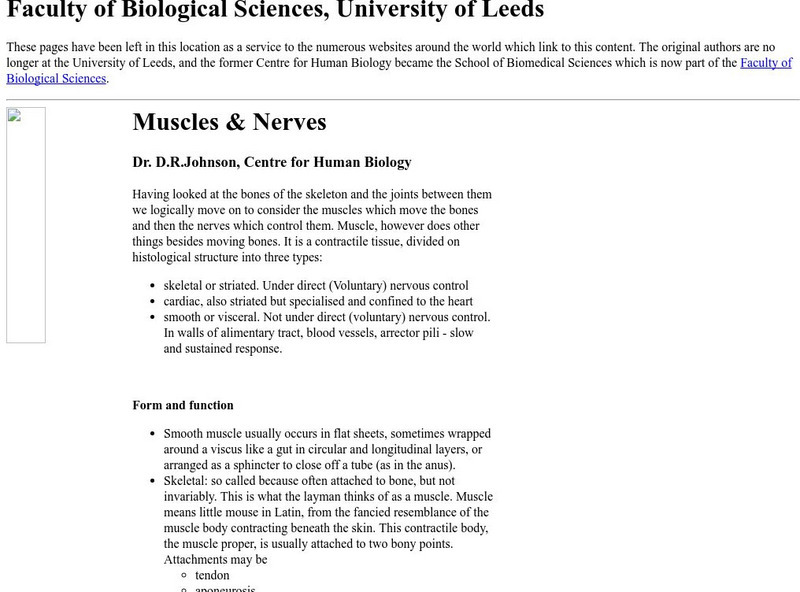


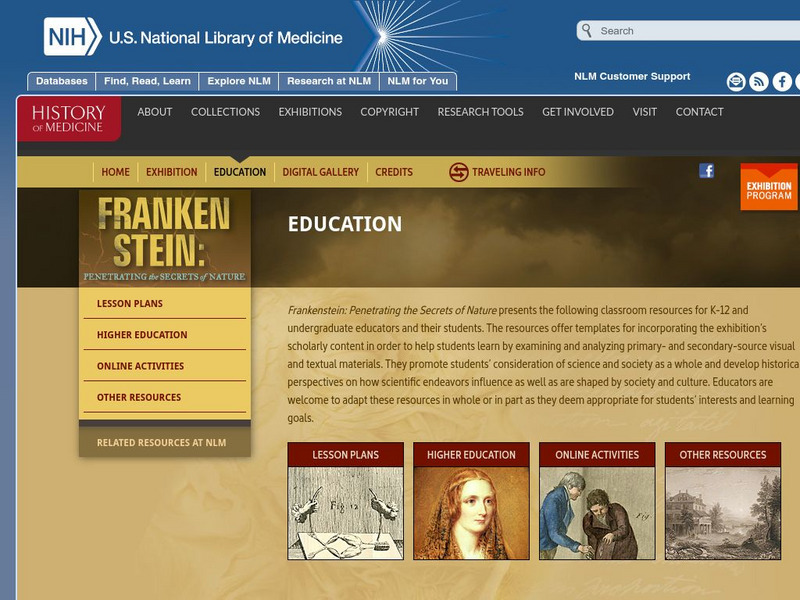
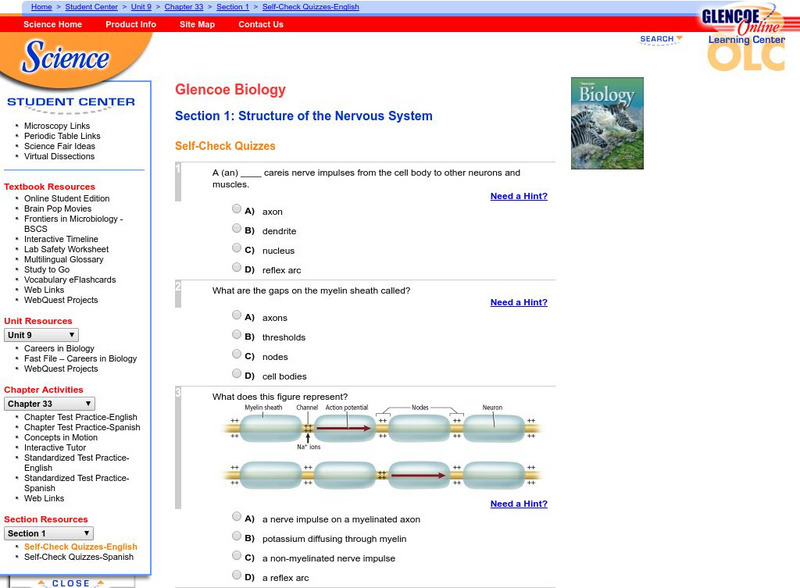
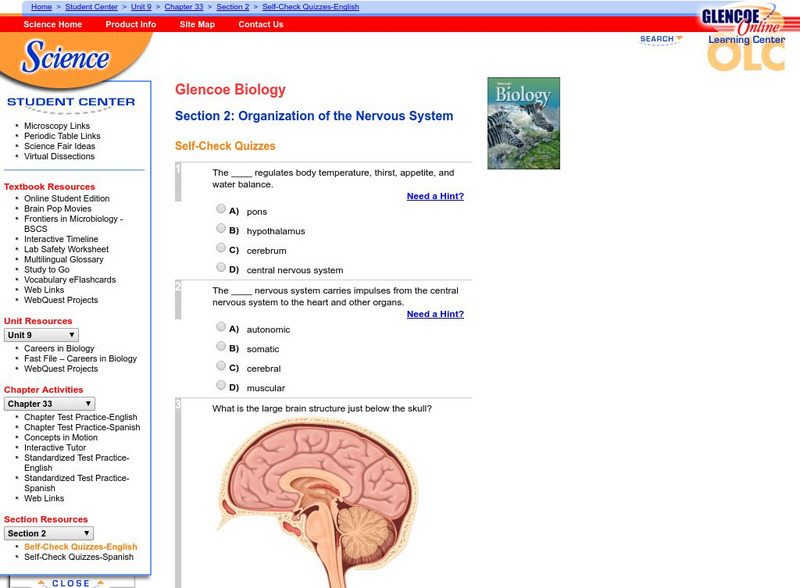
![Society for Neuroscience: Brain Facts [Pdf] Activity Society for Neuroscience: Brain Facts [Pdf] Activity](https://content.lessonplanet.com/knovation/original/113866-cd2169bec6c0105fc678c671521bd642.jpg?1661266885)




